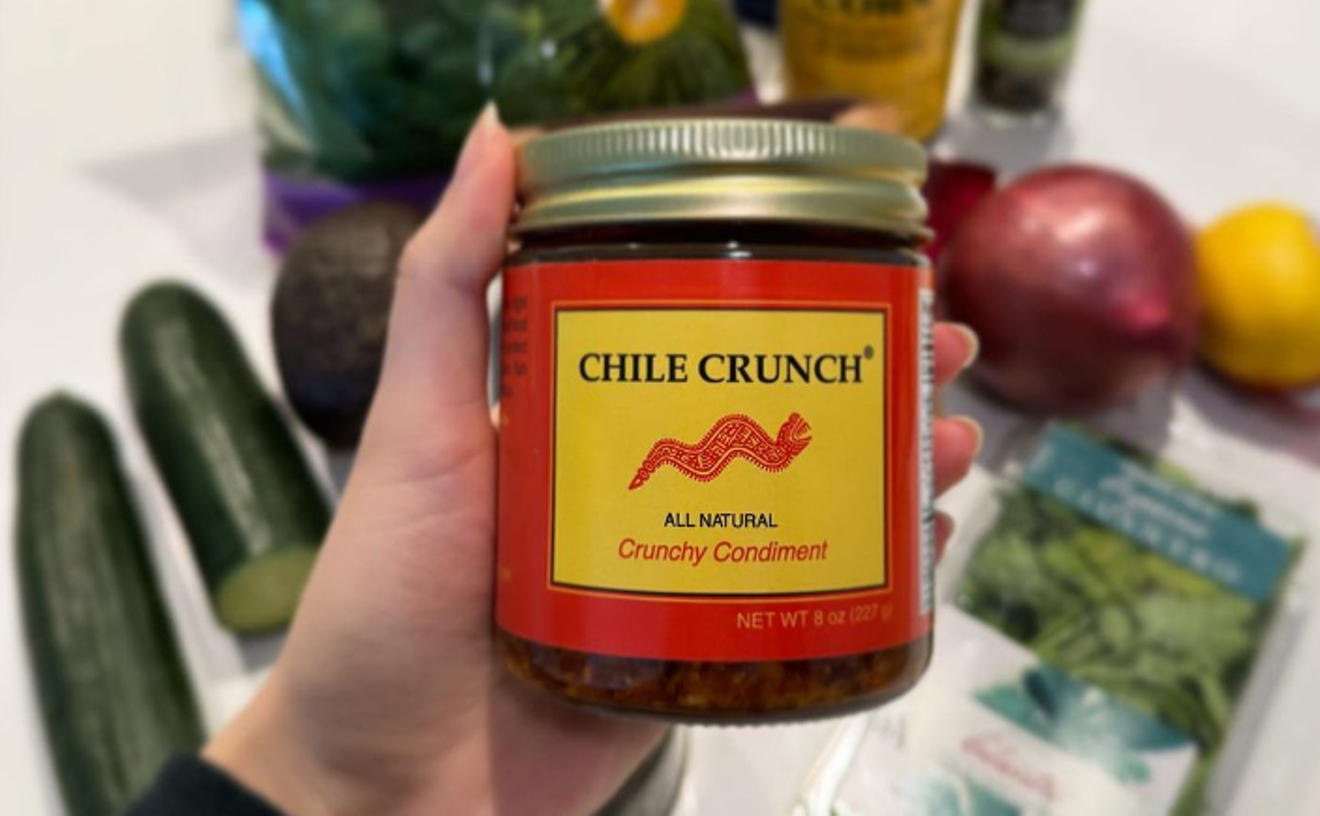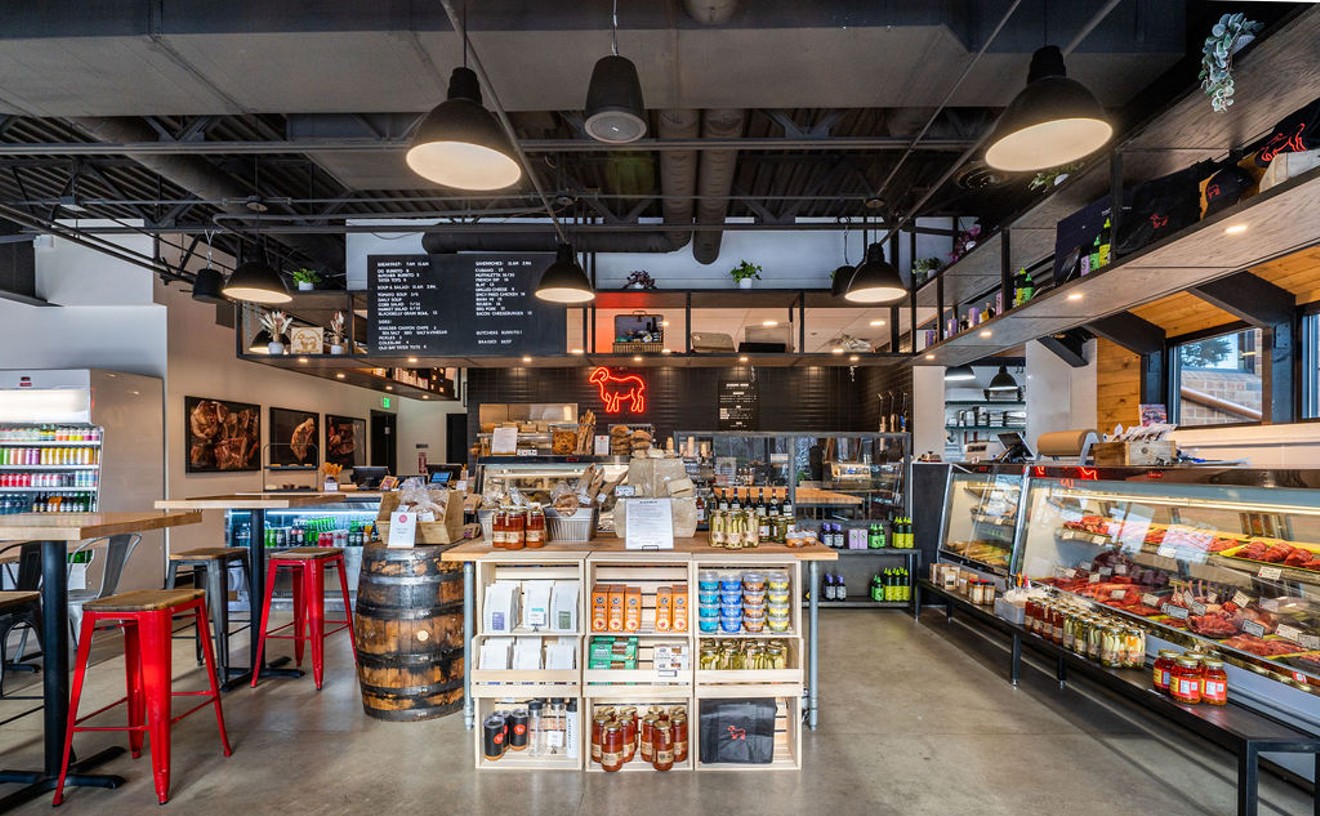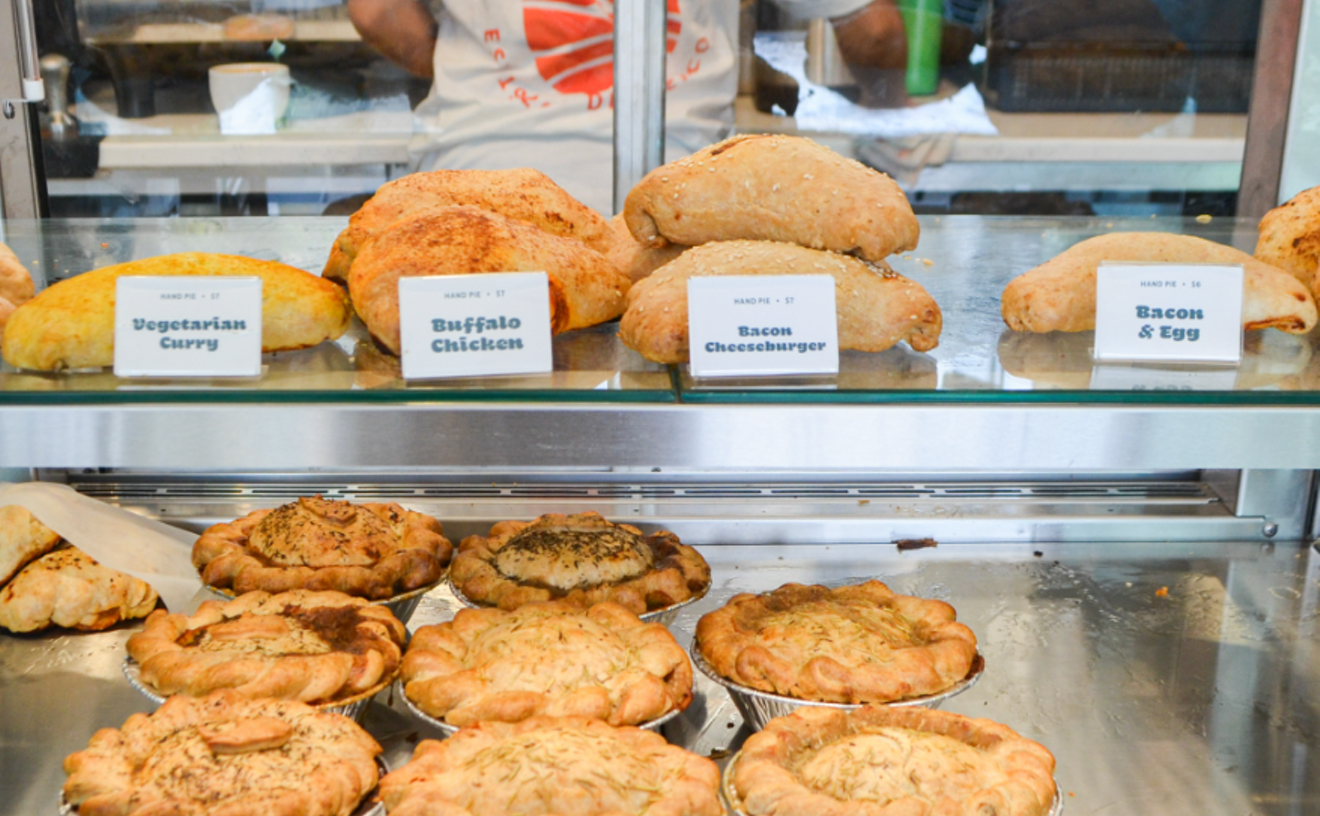Daniel Ramirez Gaetano's 3760 Tejon Street 303-455-9852 www.gaetanositalian.com/
This is part one of my interview with Daniel Ramirez, exec chef of Gaetano's; part two of our chat will run tomorrow.
Daniel Ramirez was just shy of twenty when he left Acapulco for Los Angeles to pursue a career in architecture. He had a blueprint for his future: Design tall buildings and manage big projects. But in order to get there, he'd need to finish college -- and that required tuition money, which he didn't have. "I'd spent a few years going to university in Mexico, but my dad ran into some financial problems, so I had to quit, and my sister was living in Los Angeles, so I thought I'd move out to L.A., get a job to make some money to finish school and have a great career in architecture," recalls Ramirez.
See also: - Exclusive first look: The new Gaetano's reopens on Saturday - Is a meal at the revamped Gaetano's an offer you can't refuse?
In order to tuck away dollars, he took a gig at an Italian restaurant, working alongside his brother-in-law; then, having secured a ten-year visa to work in the States, he got a job at another Italian restaurant. He started as a busser, and three weeks later, he was smearing red sauce on pizzas. He never went back to college. Blame it on the pizza: "I remember watching the guys on the line making pizzas, and I was so interested in what they were doing," explains Ramirez, who's now the exec chef at Gaetano's. "I asked the guys if I could start making pizzas -- I so wanted to learn how -- and once a guy got fired, I was hired to work the pizza station."
And that, he says, changed his life. "I started falling madly in love with food, with the art of creating and cooking, and I was working for a great company that gave me a lot of opportunities, so I was there for almost four years, opening Italian restaurants for them in both California, Hawaii and Las Vegas," he remembers. "I knew by this point that I had a major passion for Italian food, and I wanted to go to the country where it all started." So he did what any chef who wanted to stage in Italy would do: He sweet-talked the owners into sending him there to polish his craft. "I spent an amazing six months in Rome cooking for an Italian chef, a wonderful Italian chef who made me what I am today," says Ramirez.
Once his stage was over, he returned to L.A. for a year, then headed to Las Vegas, where he snatched up a gig in the kitchen of Il Fornaio. "I was ambitious, and I wanted to work for a bigger company that offered a lot of growth," he says. He quickly climbed the culinary hierarchy, starting as a junior sous chef, moving up to senior sous and then opening an Il Fornaio in Denver in 2000. In all, he spent six years with the company, eventually departing because of "discord between the chefs and corporate."
He landed -- for a mere two months -- at the Cheesecake Factory, and while it offered a decent salary and benefits, he confesses, not surprisingly, that "there was no opportunity to be creative. They don't have a chef -- they have kitchen managers -- and I left because I didn't like that kind of system, and I couldn't do the food that I wanted to do. I couldn't create, and I wanted to get back to Italian food."
A friend told him that Pagliacci's, an old-school, iconic Italian restaurant, was looking for a chef, and while Ramirez's first impression of the joint wasn't particularly positive -- "I looked at the exterior and wasn't all that taken with it; there was no traffic anywhere, and there weren't any people around," he recalls -- he was offered a job as a pasta maker, and he took it. Three weeks after starting, he was given the exec-chef position, and for the first time in Pagliacci's fifty-year-plus history, fresh pasta was on the menu.
He left Pagliacci's six years later because he wanted to master of art of baking, and after spending a year and a half making pastries at a local bake house, he returned to Pagliacci's, staying until it shuttered this past August.
Soon after, he and Chris Cina, who was overseeing the kitchen at Gaetano's (he's now the chef for Wynkoop/Breckenridge Holdings), were bantering on Facebook, and Cina mentioned that he was looking for a chef for Gaetano's. Ramirez didn't think twice. "The culture here is like the culture I grew up with. It's like family here, and I can make pasta, I can bake and I can be creative," he says. "I'm so very thankful to be here."
In the following interview, Ramirez dishes out a few words of advice to culinary schools, turns his back on menudo and recounts a humbling experience that blurred the lines between checks and chickens.
How do you describe your food? Original, authentic and Italian-inspired dishes using familiar flavors from the Old Country.
Ten words to describe you: Hard worker, dedicated, loyal, enthusiastic, honest, clean, busy, happy and sentimental.
What are your ingredient obsessions? I've always been really obsessed with saffron because it's such a unique ingredient -- there's nothing else like it. The color is so exotic, and when you combine just a tiny bit of it with other ingredients, you create this exquisite flavor that's unlike any other.
What are your kitchen-tool obsessions? An Italian kitchen without a pasta machine is like not having knives in any other kitchen. You simply can't run an Italian kitchen without making your own pasta.
Favorite local ingredient and where you get it: I love local tomatoes, which are the basis for a lot of classic Italian food. I love getting vine-ripened, juicy tomatoes of all kinds from Berry Patch Farms in Brighton.
Best food trend of the year: I really love all the new types of global combinations that I'm seeing around town. Zengo, for example, is doing a special menu fusing the flavors of Korea and Mexico. To some people, combining foods from those two countries sounds crazy, but I don't think it is, and I'm excited to see restaurants that aren't afraid to push the envelope a little bit and combine cuisines that you might not typically think would work together. When chefs bring different cuisines together, it's an opportunity for them to experiment and express themselves through interesting techniques and inspiration from varied cultures.
Worst food trend of the year: The proliferation of bacon. There are so many other kinds of meats you can use to complement a dish. Why does everything have to be made with bacon?
One food you detest: Menudo. It's a traditional food in my country that you're supposed to eat if you've got a hangover, but despite the fact that it's really popular in Mexico, I think it's really awful, and, quite frankly, I don't see how anyone can enjoy the aroma and texture of cow stomach.
One food you can't live without: I love salads -- a nice, fresh green salad can't be beat. You can put anything into it and it's satisfying as well as energizing.
What's never in your kitchen? Laziness. I want people working in my kitchen who love the craft of cooking. They don't have to be culinary-school-trained chefs -- I'm not -- but they do have to have fire and passion. They have to want to be in that kitchen every day, making everything from scratch and making it the best that they can. I want to see everyone in my kitchen hopping, all the time.
What's always in your kitchen? Humor. It's critical to share laughs with your team. And, frankly, the kitchen is a pretty funny place. Have you ever seen a linguini mustache?
Favorite dish on your menu: I love our lasagna and think it's truly the best lasagna in Denver. We make it with natural ground beef, Italian sausage and the best homemade red sauce you can find.
Biggest menu bomb: A saffron dish with asparagus, bay scallops and shrimp in a saffron cream sauce. It was a special I made while working at a restaurant in Las Vegas, and it sold incredibly well, but as soon as we put in on the menu, inexplicably, nobody wanted it.
Most humbling moment as a chef: When I first came to this country from Mexico, I was working in a restaurant, and a customer asked me for the check. I didn't speak any English, but I tried really hard to remember the word "check" so I could tell the server. But when I passed along the information, I ended up saying, "The customer wants chicken." It all got very confusing, but looking back on it makes me realize just how far I've come.
Describe the biggest challenges facing today's chefs: The young people coming into the kitchen these days don't have much talent and seem to think that being a chef is an easy lifestyle. At culinary school, they're learning about techniques and the health-department rules, but they're not being taught about the pressures you feel on the line. It's a hard career, and you give your life to it. I think the biggest challenge is finding the right people, with the most talent, who are willing to dedicate their days, and most of their nights, to their craft.
If you hadn't become a chef, what would you be doing right now? I think I'd be an architect. I've always liked to design things, and I studied architecture in Mexico before arriving in this country. Being able to create things has always been very engaging to me, and there's similarity between building a new dish and designing a building.
What's next for you? I haven't been at Gaetano's for very long, so I'm still getting settled in, but making the very best food I can is my top priority. I'm looking forward to adding some of my favorite dishes to the menu and refining some of the dishes that Gaetano's has long been known for.
Follow @CafeWestword










